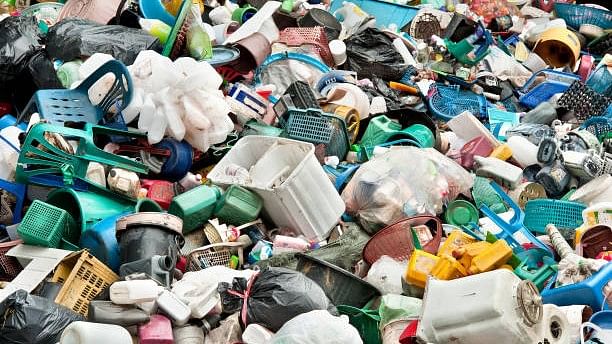
Image for representation.
Credit: iStock Photo
The enormous environmental hazards associated with the accumulation of plastic wastes is no longer unknown to the public. Globally, as much as one million disposable plastic bottles are bought every minute. This alarming statistic emphasizes how urgently we need to address and act on the growing problem of plastic waste.
On the brighter side, Japan is spearheading the way in plastic recycling, which has the potential to completely transform our approach to addressing this widespread issue, according to Interesting Engineering.
Taking plastic recycling to new heights?
A Japanese firm called Environment Energy is planning to start a commercial operation in 2025 that has the potential to completely revolutionise the plastic recycling industry.
With the use of its cutting-edge HICOP (High-efficiency Oil Production) technology, the company hopes to process 20,000 tons of plastic per year and turn plastic trash into crude oil.
“Our core purpose is to create a circular economy where waste becomes the source of new materials,” said Suji Noda, the CEO of Environment Energy.
The HICOP process involves the breaking down of plastic molecules at temperatures up to 450°C by using a method called catalytic cracking, a technique which is common parctice in petroleum refining.
This strategy has a number of benefits over traditional recycling techniques. It is much safer compared to pyrolysis, a rival method that breaks down plastics using extremely high temperatures.
The HICOP approach uses chemical recycling, which disassembles plastic into its component pieces as opposed to mechanical recycling, which grinds and repurposes plastic. As a result, the possibility of using a wider range of applications increases significantly, and better-quality final products can be expected.
Catalysts bind to the plastic surface to start the process, dissolving the substance into smaller bits and finally turning them into hydrocarbon gasses.
Crude oil is then created by condensing these gasses. By using catalysts, safety and efficiency can be increased because the reaction then becomes much milder than pyrolysis.
HICOP's adaptability is one of its most promising features. The system can process PVC with very little contamination because it can handle mixed plastic waste and even has a dechlorination feature.
In real-world applications, where sorting plastic debris is frequently a major difficulty, this versatility of this method can prove to be mighty essential.